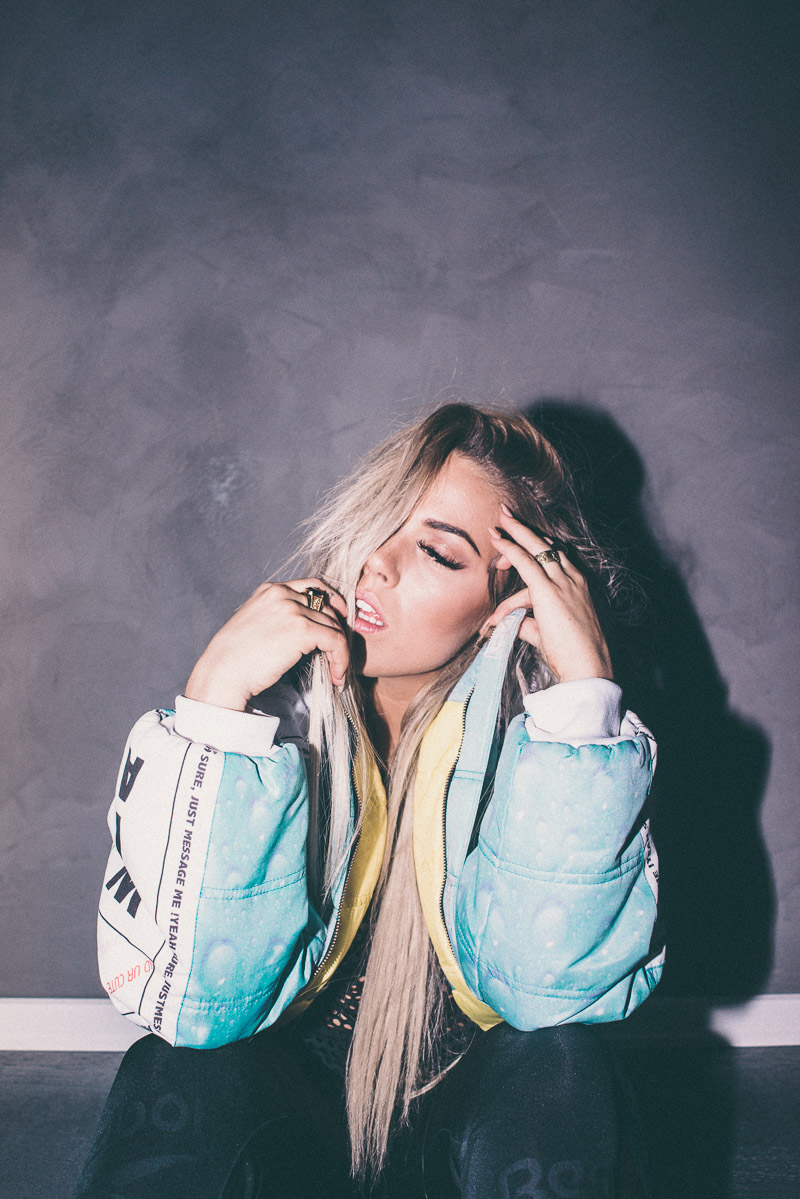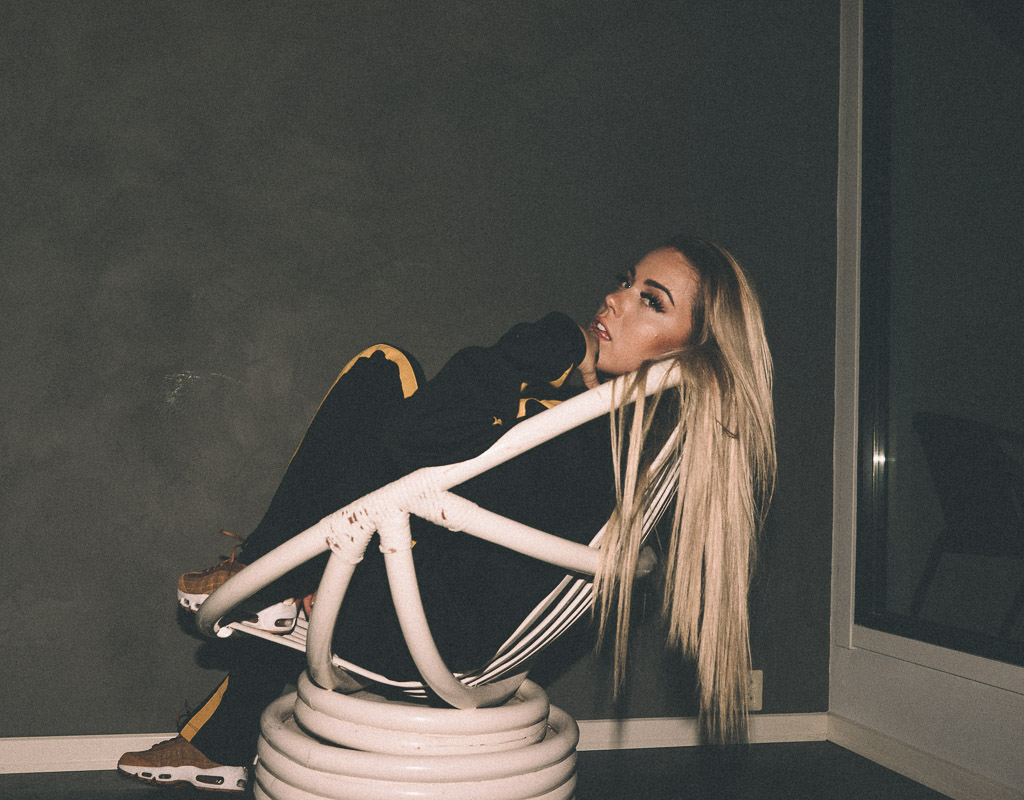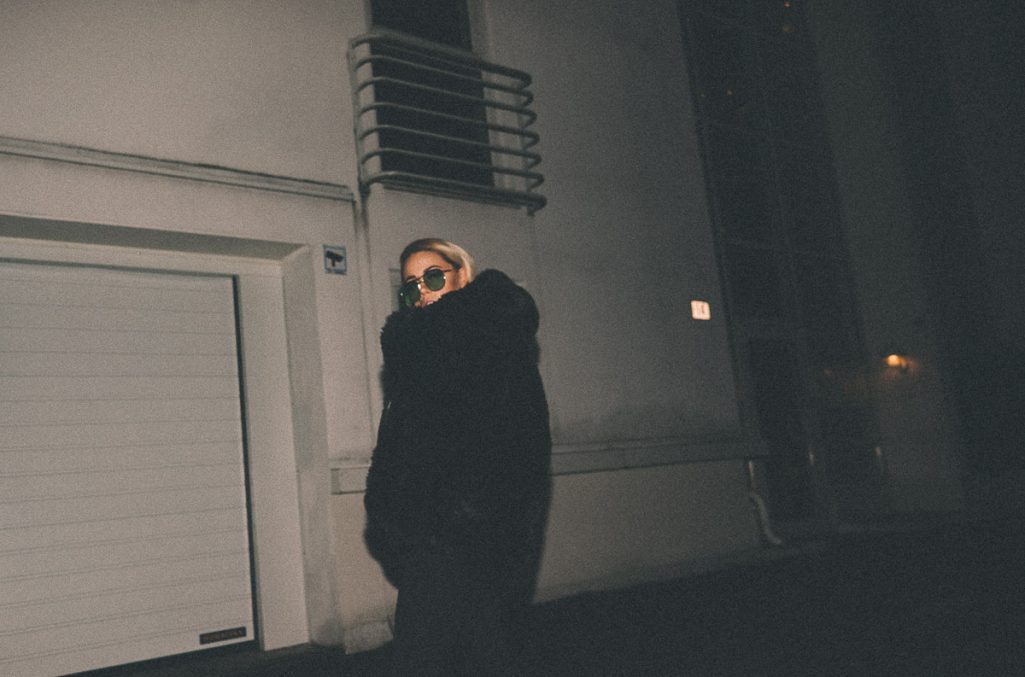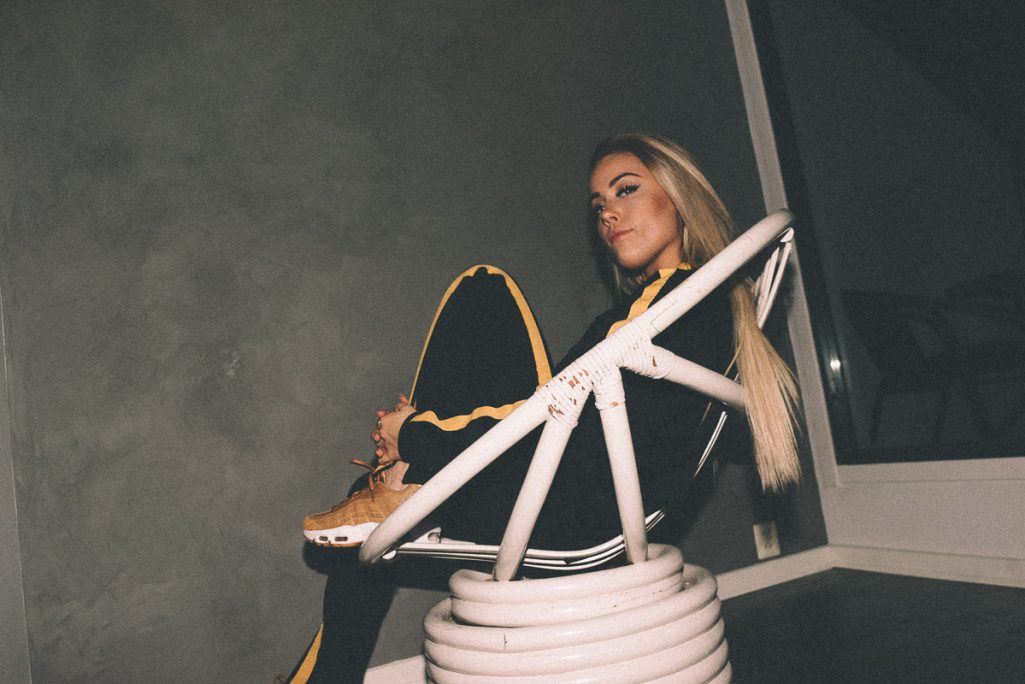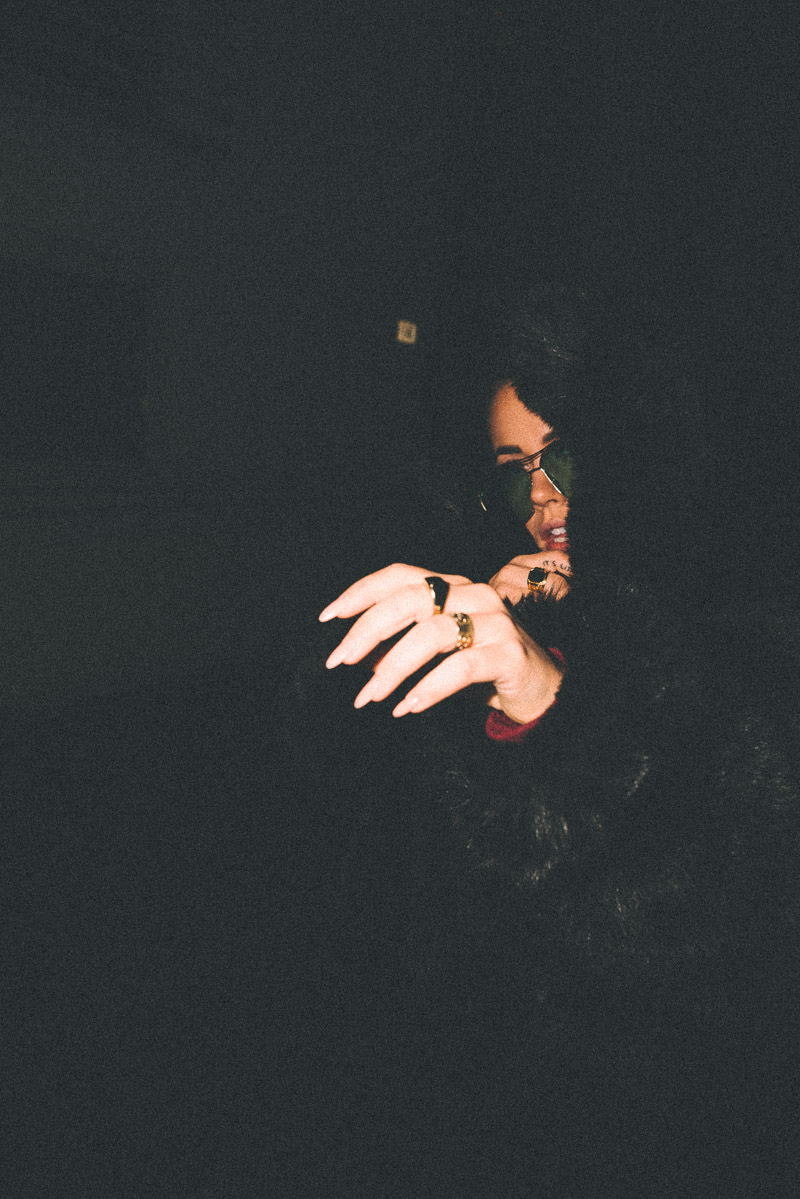Merging elements of EDM, Pop and indie, Norway’s Julie Bergan is poised for a breakout in 2017. Following up her dance floor smash “Arigoto” which is rapidly closing in on 60M streams on Spotify, is her most recent, “Blackout,” an exuberant synth-drenched anthem for turning out the lights on the one who fucked up.
C-Heads sat down and talked inspirations with Julie, and what makes her thrive in today’s world.
Intro by Andy Gorel
Turning childhood ambitions into a reality
I come from a very musical family – music and dance were an integral part of our daily lives. Both of my parents would sing and play instruments, and my sister would dance. This inspired me to do the same. Not a day went by without me nagging my dad to play something for me or to teach me a new song on the piano. I idolized my sister, so of course I also took up dance, and during recitals at the dance academy I discovered just how much I loved being on stage. Growing up I would sing and dance to the songs of my favorite artists, trying my best to imitate their style of singing. This enabled me to pick up new techniques and eventually find my own voice. When I became a little older, one of my girlfriends encouraged me to upload some videos of me singing to YouTube. It was intimidating, but she somehow convinced me. I uploaded a few covers which got quite a few views and after a while people started to take notice. God bless the internet, right!?
Growing up in Norway
I grew up in a country, environment and culture where I’ve been allowed to be myself. Everything was always organized so that I could experiment with the arts and these limitless possibilities enabled me to find which medium I liked the most. Norwegians are small in numbers, so if you stick out people will notice. In many ways, coming from a small country makes it feel safer and less intimidating to try. It also made me more determined to see more, learn more and experience the big world outside. I have been allowed to dream and let my ambitions grow, but I’ve also learned that I have to work hard for good things to happen. This environment definitely helped make me the person and artist I am today.
Creative process
I am very much a dreamer. I’m sensitive, but I never really liked to talk about feelings as a kid. Music has always been my outlet to express what’s on my mind, where I could keep it real without feeling stupid or vulnerable. I’m also very social and I love mixing with others and experiencing their own creative processes. Even though I usually write on my own, it’s great to be able to throw ideas and thoughts back and forth with a sparring partner who has gone through the same experiences or something relevant for to us both. It’s also important for me to take part in all the creative processes related to my career. When you write or perform, you often have a visual idea of it all and how to resolve it all as a whole. The creative process is the greatest part in one’s career, and the part that will define the impact of the outcome. It’s exciting and rewarding to see just how much goes on “behind the scenes’.
The influences, work and effort that went into ‘Arigato’ and how this experience shaped her approach and attitude to ‘Blackout’
When I write I’m usually inspired by my own experiences or those of people close to me. In this case it was all about my friend’s boyfriend who was extremely overprotective. It made me want to express my own strength and that I’m just fine on my own terms. I want to be able to try and fail. I want to see the world without having anyone trying to protect me from it. The writing process started in Stockholm, but after we took the topline to my producer Joakim in Oslo it got a new lease of life and the exact energy we were looking for. It was a great experience to see how a finished song we weren’t 100% happy with could become exactly what we envisioned. Sometimes you’ll give up on a song because something’s missing, but you can’t put your finger on it. If you then pass it on to a creative soul and a fresh set of ears, they might come up with ideas and changes to make the song complete – even if they weren’t there at the very beginning. Something similar happened in the process with “Blackout.” It can feel like a cut and paste process before it all comes together in the end.
Being a female voice in music / art and the challenges or victories that come with it
I am so proud to be a woman- singing and performing makes me feel powerful. Being a female artist has its pros and cons, though. On the one hand it’s a great platform for speaking and to stand up for women as a whole, but on the other hand it’s easy to become objectified and looked down upon in the process. I do see it as something very positive, though. It’s a new age and whilst there is still a lot of work to be done, the ‘problem’ of being a woman in this environment is gradually getting better. I hope I can contribute and inspire other girls to stand up for themselves and follow their own dreams.

